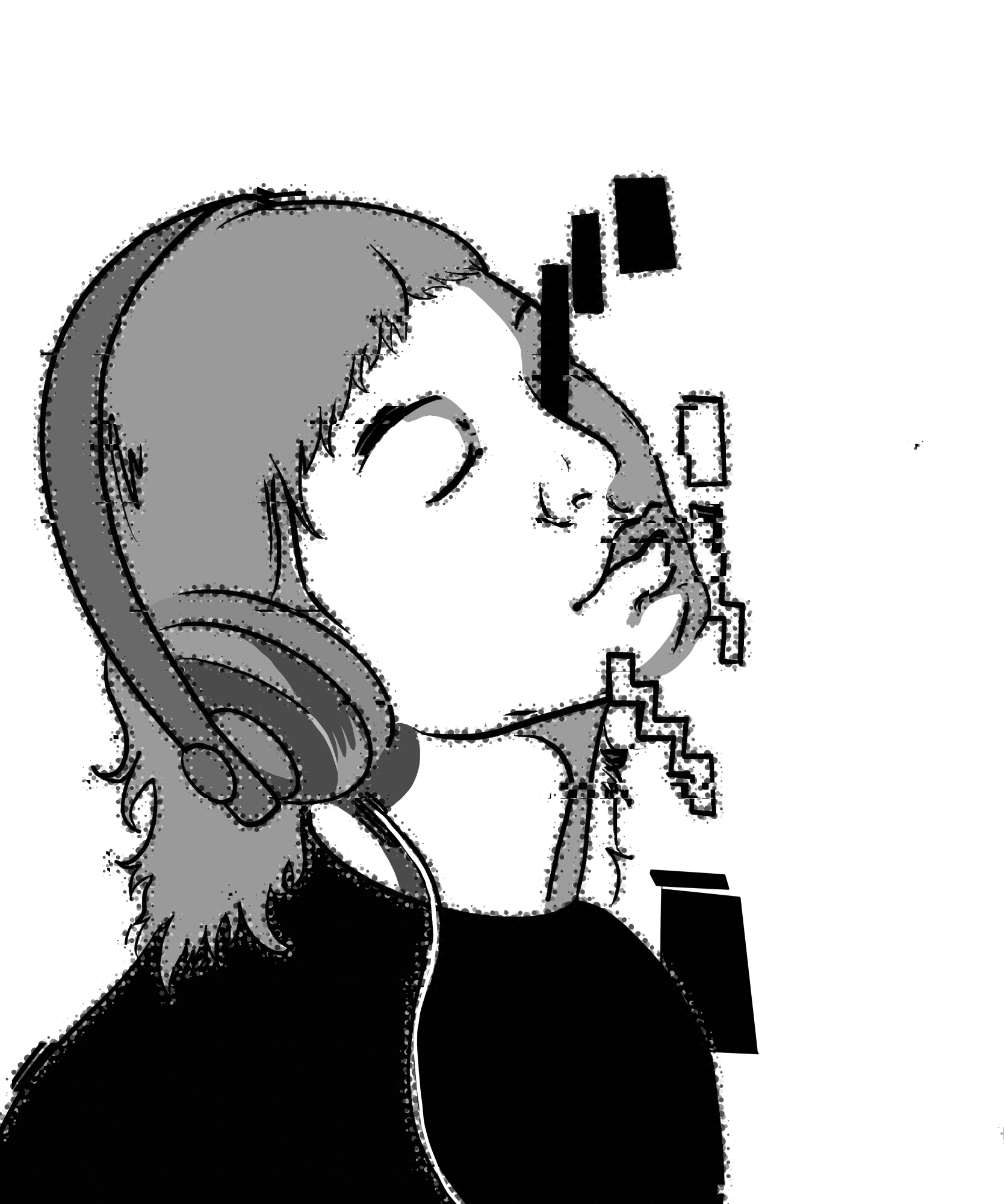
News flash for all Swifties and fans of the 1975: your taste is unoriginal. Your musical palate is bland, and you’re just like every other young adult. But be careful — if you enjoy music that’s too over the top, like hyperpop, you’re a freak with no sense of good music. Either way, the source of pleasure warrants judgment.
Meet the hipster, a figure in search for the middle ground. The hipster uses taste as the currency of “coolness” and prides themselves on uncovering hidden talent long before the masses catch on. But beneath the hipster’s claim to cultural elitism lies a fear of losing individuality. If their niche interest does hit the mainstream, the hipster must find something else.
Many of us have fallen into the hipster mindset. We champion a Spotify Wrapped featuring obscure artists while casting judgment on mainstream hits. There’s a relentless drive to stand out from the crowd, but only in the “right” ways.
At sixteen, I came across 100 gecs, a duo producing music described as an “anarchic assault on the ears.” I couldn’t quite articulate why I liked it; it’s catchy, but also obnoxious. I knew that if I shared this music with friends or family they would be horrified by its chaos. Beneath my enjoyment was a hint of shame — a sense that my taste would single me out in all the wrong ways. Like sitting down with a Colleen Hoover novel or enjoying the flavor profile of a Big Mac, listening to 100 gecs felt like a guilty pleasure.
To my surprise, 100 gecs went viral on Tik Tok. I hit the hipster jackpot, I found something hidden and watched it become popular. I felt validated in my music taste as the duo entered the mainstream.
From here I found out that 100 gecs created hyperpop music — a burgeoning musical movement that embraced the extreme and unconventional, and 100 gecs was in the midst of popularizing it. Hyperpop defied the hipster’s social currency, rejecting the assignment of value to artistic preference. Instead, it celebrated pleasure as something that defied reason — an irrational, often unsophisticated indulgence in what produces an emotional response.
Hyperpop’s rise to prominence has been fueled by its accessibility, both in production and distribution. Local Walla Walla hyperpop artist Declan, or Giant Robot, described how this has given rise to the movement as a whole.
“Production software and everything is so readily available. More and more people are getting into digital production and making music. It’s really cool,” they said.
Giant Robot noted how the band Gorillaz made an entire album on an iPad. To make hyperpop, artists don’t need complicated equipment or extensive knowledge of production.
Hyperpop spreads through platforms like SoundCloud and TikTok, which have granted people all over the world access to share and listen to it for free.
Unlike the hipster’s tendency to safeguard their artistic “discoveries,” the hyperpop community thrives off of virality. By asserting itself into the mainstream, hyperpop challenges creative “elites” who claim to know what makes good art.
Sophomore Ruth Radwin and avid hyperpop listener sees the virtual presence of the movement as core to its existence.
“It’s so very much online, and it specifically exists and is propagated within these internet spaces. It’s very easily accessible and popularized, and I think because of this it resists a kind of gatekeeping.”
An aspect of hyperpop that draws both Giant Robot and Radwin in is its queer presence. With major hyperpop artists like SOPHIE, Kim Petras and Arca proudly representing the transgender community, hyperpop has become a sanctuary for those whose identities defy societal norms. It’s a subculture where art and people, unaccepted by popular cultural and hipster claims to cultural elitism, can explore the boundaries of creativity, identity and pleasure.
Hyperpop resists the hipster’s assignment of value to artistic preference. Instead, it accepts pleasure as something that disobeys the laws of reason. Rather than criticizing pop music, it takes some of its “trashy” qualities like autotune and catchy lyrics and hyperbolizes it. Art doesn’t have to be sophisticated — at its core, it’s about producing an emotional response.
“I’m someone who listens to a lot of music that most people wouldn’t consider music,” said Radwin. “I think it’s really interesting how hyperpop can push those boundaries of what we consider music, of what we would consider enjoyable.”
Desire is chaotic and unpredictable. In place of the hipster’s tendency to assign value to desires, hyperpop celebrates the messy, the illogical and the unapologetic human experience. As people separate desire from value, the movement is attracting more artists and listeners. Hyperpop lets people explore the complexities of the human experience, in all its weirdness.


julie carter • Apr 25, 2024 at 9:41 am
History is full of examples of creativity that was rejected at first and then recognized as vital later. One of the great aspects of the internet is as a facilitator for spreading art to find its audience and create community. It is so cool that Giant Robot is right in Walla Walla. More art! Less shame!